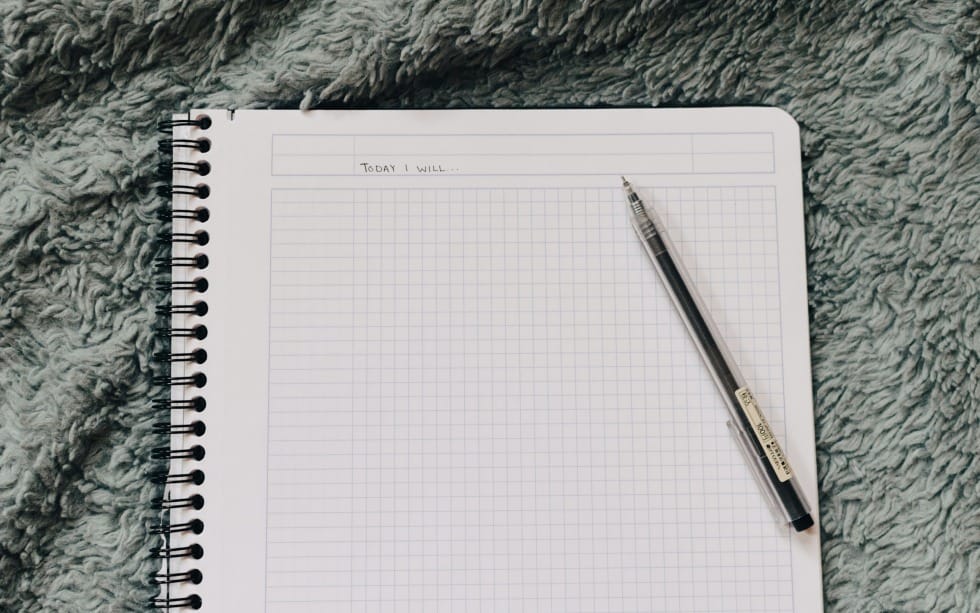How Would I Live If the Titles of My Life Were Stripped Away?
This question of doing is ultimately a question of being. When we ask, Am I doing what matters? we are really asking, Am I being who I should be?

Yesterday, we looked at the seeming worthlessness of life as outlined by the ancient author of Ecclesiastes in Chapter 1. Turning to Chapter 2, we see a completely different side of this author. He writes,
4 I increased my achievements. I built houses and planted vineyards for myself. 5 I made gardens and parks for myself and planted every kind of fruit tree in them. 6 I constructed reservoirs for myself from which to irrigate a grove of flourishing trees. 7 I acquired male and female servants and had slaves who were born in my house. I also owned livestock—large herds and flocks—more than all who were before me in Jerusalem. 8 I also amassed silver and gold for myself, and the treasure of kings and provinces. I gathered male and female singers for myself, and many concubines, the delights of men. 9 So I became great and surpassed all who were before me in Jerusalem; my wisdom also remained with me. 10 All that my eyes desired, I did not deny them. I did not refuse myself any pleasure, for I took pleasure in all my struggles. This was my reward for all my struggles. 11 When I considered all that I had accomplished and what I had labored to achieve, I found everything to be futile and a pursuit of the wind. There was nothing to be gained under the sun.
"Nothing to be gained under the sun."
These are the words of a man who has everything but feels like he has nothing. His words should serve as a wake-up call for us today.
The luxury of living in a prosperous society is that we can spend decades focused on things that don’t matter. It’s only when a crisis rocks our worlds that our safe little bubble pops.
All we once thought was sturdy starts to wobble, and these crisis moments become life-defining turning points that spur us to fresh action. Sometimes, they arrive late in life after we have already made a series of unfortunate turns. When this happens, we add our names to the list of people who reflect on their lives with regret.
So, how do we pivot? How do we avoid living a life of distraction and build a life that counts?
By Outlining What Matters Most
Several years ago, as I worked through what I might do if I only had three years to live, I sat down on my front porch, took out my phone, and jotted down a list of priorities. I concluded that I would do seven things if I knew my time was short. I would:
- Get to know God so well that eternity with him felt like a natural transition.
- Daily look my wife and kids in the eyes and make each moment show my love for them.
- Spend a lot of time with people who made me laugh.
- Talk about my life experiences with others and do all I could to encourage them.
- Sit with people in pain and share in their sufferings.
- Connect with as many people in my church as possible.
- Tell a bunch of people about Jesus.
To me, these are the things that really matter. Everything else is tertiary. And this natural progression of thought led me to an additional question: If this was the way I would live if only three years remained, why wouldn’t I live this way if thirty years remained?
The reality is we all have an invisible notecard that highlights our priorities. We all make decisions based on what we value most.
If our careers are the focal point of our pursuits, we will direct all our energies to work. If it’s our goal to create a nice little family bubble that isolates us from the outside world, we will become materialistic and make purchases that create more comfort. If pleasure is our focus, we’ll do all we can to surround ourselves with people who make us feel better about ourselves.
This question of doing is ultimately a question of being. When we ask, Am I doing what matters? we are really asking, Am I being who I should be? As Vance Pitman rightly notes, “Doing flows from being, not the other way around.”[1] This is how it should be. Every action we take should be done from some cognitive understanding of who we are.





